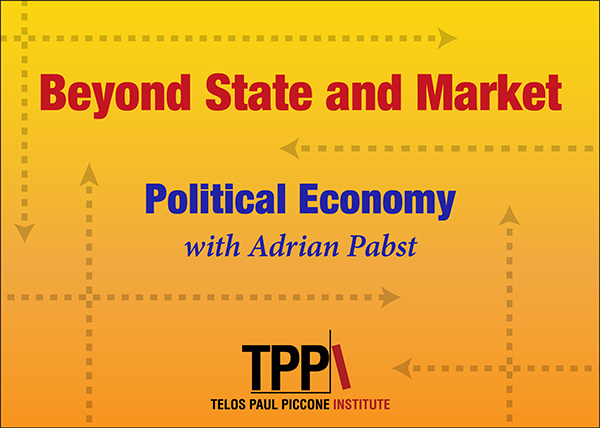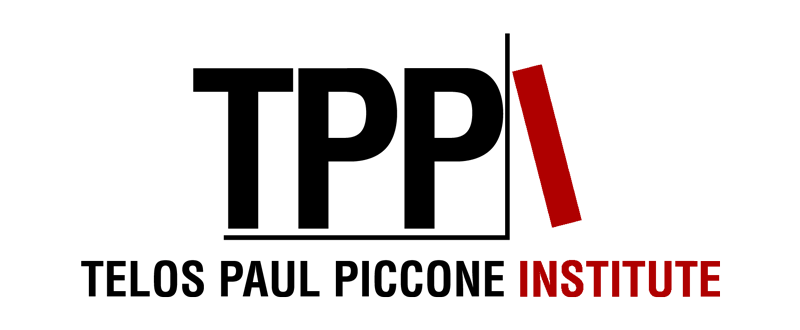Beyond State and Market:
Political Economy with Adrian Pabst
 From its inception, the Telos circle combined a critique of communism and capitalism with constructive alternatives drawn from a variety of intellectual traditions such federalism or populism, with their shared emphasis on subsidiarity and democracy. In breaking with both Marxist-Leninist totalitarianism and secular liberalism, its members rejected economic and technological determinism in favor of human agency and democratic self-rule.
From its inception, the Telos circle combined a critique of communism and capitalism with constructive alternatives drawn from a variety of intellectual traditions such federalism or populism, with their shared emphasis on subsidiarity and democracy. In breaking with both Marxist-Leninist totalitarianism and secular liberalism, its members rejected economic and technological determinism in favor of human agency and democratic self-rule.
Today, as the contest has shifted to the apparent opposites of Western market capitalism and Eastern state capitalism, TPPI will continue to develop ideas for alternative political economies anchored in markets that are embedded in social relations and civic institutions—all the intermediary institutions that constitute society and uphold a more plural polity.
For all their differences, market-driven and state-led forms of capitalism tend toward centralizing power, concentrating wealth and commodifying everyday existence. These patterns are incompatible with the subsidiarist emphasis on devolving decision-making to a level in line with the dignity of the person. They are also incompatible with the democratic imperative of serving society rather than the bureaucratic state or the global free market.
Contemporary capitalism, allied with techno-science and the bureaucratic centralization that is distinctive of the modern nation-state, tends to extend the value of "choice" within the bounds of a private life that is ever-more rigorously policed. The range of permitted choice can be endlessly extended, so long as these choices are indifferent as far as the authoritarian State-Market in the East and global South is concerned—a mere mirror image of the authoritarian Market-State in the West.
The task is to overcome the convergence of state and market power in the direction of more mediated and participatory models of statecraft and moral markets capable of promoting the common good—reconciling the estranged interests of capital and labor so that together all people can participate in mutual flourishing.
Directed by Adrian Pabst, the Telos political economy initiative will encompass a wide array of work over a five-year period until 2030, starting with a TPPI-hosted international conference at the University of Cambridge.
Conference
On December 13–14, 2024, the Telos-Paul Piccone Institute, in association with the Centre for Social Renewal, Energeia, and Plough, convened an event entitled "Political Economy and the Good Life: The 2024 Postliberalism Conference," at McCrum Lecture Theatre, Corpus Christi College, University of Cambridge. Click here for more details about the conference.
